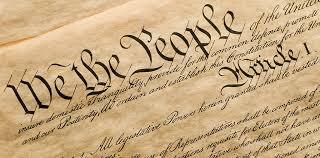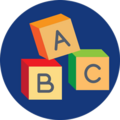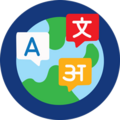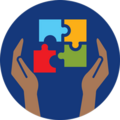Social Studies Content Area

Upcoming Events
The Teaching Diverse Histories Summit, funded by MDE’s 99d Grant and hosted by Westwood Community School District and Wayne RESA, equips teachers with the skills to teach comprehensive, inclusive American history in alignment with MDE’s strategic goals. Learn more about this August 13-14 event in Detroit's Icon building (200 Walker St,Detroit, MI 48207).
Our Social Studies Team & Resources
Wayne RESA Social Studies team is here to help schools best serve their students as they develop civic competence. Please contact our Social Studies Consultant John Farris (farrisj@resa.net) for support in curriculum, instruction, assessment, and professional learning.
Resource Highlights
Instruction
Teaching with Primary Resources
- Teaching with Primary Sources Initiative - Through TPS Direct, educators can download lessons in PDF format with goals such as Analyzing Photographs, Analyzing Maps, and Connecting with Primary Sources. The professional development and teaching tools help educators identify excellent sources within the Library's collection to build students' critical thinking skills in an engaging way. Given the wealth of information available online, TPS Direct helps make the process of locating ideal classroom materials easier for busy teachers and administrators.
- Teaching with Primary Resources: The Library of Congress Learning Page - Here is a "teachers eye view" of over 7 million historical documents, photographs, films, maps and audio recordings. You will find lessons, features, activities, and classroom tips on how to use the resources of the Library of Congress to teach with primary and secondary resources.
- The National Archives: Teaching with Primary Sources Lesson Plans - This section contains reproducible copies of lesson plans and primary documents from the holdings of the National Archives of the United States. The lessons were written by classroom teachers. It also includes analysis tools.
Sources of Primary Resources
- American Memory - Millions of digital items that document American history and culture.
- Lyrical Legacies - An in-depth look at unique song and poetry documents from the Library's digital collections.
- Performing Arts Encyclopedia - The Library's collection of scores, sheet music, audio, films and more.
- Docs Teach - This unique site within the National Archives allows you to search and build your own primary source portfolio as well as create your own interactive activities with them.
- Today in History - Check on what happened today in History!
- Using Your Textbook to Teach Historical Analysis
- American Journeys - American Journeys contains more than 18,000 pages of eyewitness accounts of North American exploration, from the sagas of Vikings in Canada in AD1000 to the diaries of mountain men in the Rockies 800 years later.
Read the words of explorers, Indians, missionaries, traders and settlers as they lived through the founding moments of American history. View, search, print, or download more than 150 rare books, original manuscripts, and classic travel narratives from the library and archives of the Wisconsin Historical Society.
- The Antiques Roadshow Teacher's Guides - These guides help educators integrate material culture into their classrooms. Using the show's artifacts, it presents teaching strategies and questions to ask on how people make, collect, and use material objects.
- Milestone Documents - Monthly e-newsletter helps U.S. history teachers engage their students in historical research and understanding. Each issue features activity guides, in-depth analysis, and helpful teaching hints related to important primary source documents. Click the "sign up" button below to have the newsletter automatically e-mailed each month.
Virtual Field Trips
- Information About Using Virtual Fieldtrips
- Colonial Williamsburg - Programs for Grades 4-8 with live broadcasts on public-television stations and archived video presentations on the web highlighting people, places, and events throughout history.
- The Virtual Smithsonian - Includes online tours of exhibits in the museums of natural history, American History, and art in Washington.
- National Geographic Expeditions Online - Features a database of lesson plans, online activities, and maps tied to the national geography standards.
- Project Based and WebQuest Resources - This page was created by David Frankel, Instructional Media and Technology Specialist at the Wayne RESA.
Curriculum
The College, Career, and Civic Life Framework
- Rationale for the C3 Framework
- What is NOT Covered in the C3 Framework
- The C3 Framework
- C3 Instructional Shifts
Reading Standard for Literacy in History/Social Studies Grades 6-12
The MC3 Curriculum was created by several ISDs and RESAs to assist local school districts in implementing the new social studies content expectations. It provides high quality curriculum materials for free through its website.
Constitution Day
Please contact John Farris (farrisj@resa.net) if you use other resources that you would like to have posted.
 This Congressional initiative is authorized by Section 111 of Division J of Pub. L. 108 of the Consolidated Appropriations Act, 2005, Dec. 8, 2004; 118 Stat. 2809, 3344 Department, Section 111(b) states each educational institution that receives Federal funds for a fiscal year shall hold an educational program on the United States Constitution on September 17 of such year for the students served by the educational institution For purposes of the Department implementation of this requirement educational institutions includes but is not limited to local educational agencies institutions of higher education receiving Federal funding from the Department.
This Congressional initiative is authorized by Section 111 of Division J of Pub. L. 108 of the Consolidated Appropriations Act, 2005, Dec. 8, 2004; 118 Stat. 2809, 3344 Department, Section 111(b) states each educational institution that receives Federal funds for a fiscal year shall hold an educational program on the United States Constitution on September 17 of such year for the students served by the educational institution For purposes of the Department implementation of this requirement educational institutions includes but is not limited to local educational agencies institutions of higher education receiving Federal funding from the Department.
Educational institutions receiving Federal funds from the U.S. Department of Education must implement the statutory requirement pertaining to the United States Constitution, on a date designated by statute as Constitution Day and Citizenship Day.
Section 111 requires that Constitution Day be held on September 17 of each year, commemorating the September 17, 1787 signing of the Constitution. However, when September 17 falls on a Saturday, Sunday, or holiday, Constitution Day shall be held during the preceding or following week.
Teaching Resources
Please contact David Hales (halesd@resa.net) if you use other resources that you would like to have posted.
Elementary
- Biographies of the Founding Fathers - Recount how the Constitution was created and ratified. Learn about the Bill of Rights. Read biographies of the Founding Fathers.
- Center for Civic Education - The Center for Civic Education, in collaboration with the American Association of School Administrators, offers lessons suggested for use at each of the grade levels, Kindergarten to Grade 12.
- National Constitution Center - Use their lesson plans or one of their great online events or virtual field trips for Constitution Day.
- The Constitution Explained for K-3 Students - The Constitution Explained is a synopsis of the Constitution, article by article, amendment by amendment in everyday language. This website is a good study guide for reading about the Constitution in language that people can understand.
- The Constitution Explained for 4-7th Grade Students - The Constitution Explained is a synopsis of the Constitution, article by article, amendment by amendment in everyday language. This website is a good study guide for reading about the Constitution in language that people can understand.
Middle School
- Scholastic Lesson Plans - Preamble to the Constitution---What is Good Government Anyway? is a lesson plan written for Grades 3 to 5.The emphasis is on learning how some aspects of good government are included right in the Preamble.The culmination of the lesson is a mural.
- A More Perfect Union - Students view a slideshow outlining events leading to the U.S. Constitution and participate in a discussion activity on "enduring questions."
- Biographies of the Founding Fathers - Recount how the Constitution was created and ratified. Learn about the Bill of Rights and read biographies of the Founding Fathers.
- Center for Civic Education - The Center for Civic Education, in collaboration with the American Association of School Administrators, offers a variety of K-12 lessons.
- National Constitution Center - Use their lesson plans or one of their great online events or virtual field trips for Constitution Day.
- ConstitutionDay.com website - Along with information on the Preamble and Ratification, this site provides an extensive list of Constitution facts, some items for sale, press releases, flyers and more.
- Constitution Facts - ConstitutionFacts.com provides a series of free educational resources and Internet links to help educators celebrate Constitution Day each year.
- National Endowment for the Humanities Constitution Day lessons
- Full Text of the Articles of Confederation - Every textbook that discusses the Constitution identifies it as the replacement for the faulty Articles of Confederation. Here is a resource that gives the entire text of the Articles of Confederation, something not found in textbooks.
- iCivics.Org - Online games, lessons, and materials on civics subjects, including the Constitution
- Interactive Constitution Timeline - This interactive timeline of events marks more than 200 years of our constitutional history. These events tell the evolving story of our Constitution & the role it continues to play in our lives. See headlines, hear debates, explore graphs and maps.
- Library of Congress - They have compiled a variety of materials from across its collections. Explore these rich resources and features to learn more about one of America's most important documents.
- State Bar of Michigan- These are lessons developed and/or compiled the State Bar of Michigan and are primarily focused on grades 6-7-8.
High School
- Annenberg Classroom - These comprehensive resources include a Constitution Guide, Videos, Timelines, Issues, Games & Interactives, PDF lessons and iBooks
- Bill of Rights Institute - Creative lesson plans grouped into four categories including "American Lives, Primary Source Activities, Bill of Rights in the News and Landmark Supreme Court cases and the Constitution" are available on this site.
- Biographies of the Founding Fathers - Recount how the Constitution was created and ratified. Learn about the Bill of Rights and read biographies of the Founding Fathers.
- Center for Civic Education - The Center for Civic Education, in collaboration with the American Association of School Administrators, offers a variety of K-12 lessons.
- ConstitutionDay.com website - Along with information on the Preamble and Ratification, this site provides an extensive list of Constitution facts, some items for sale, press releases, flyers and more.
- Constitution Facts - ConstitutionFacts.com provides a series of free educational resources and Internet links to help educators celebrate Constitution Day each year.
- Library of Congress - They have compiled a variety of materials from across its collections. Explore these rich resources and features to learn more about one of America's most important documents
- Major Debates of the Constitutional Convention - Students read an article on the major issues and compromises tackled during the Constitutional Convention and participate as commission members in discussing representation in the modern U.S. Senate.
- National Constitution Center - This website is supported by the National Constitution Center, American Bar Association, Bill of Rights Institute, C-SPAN, Center for Educational Technologies, the Campaign for the Civic Mission of Schools, The Constitution Project, The Council for Excellence in Government, courtTV, Justice Learning, The National Archives, and Scholastic. This kind of collaboration creates a sampler of the best work of the leading organizations for education about our government.
- National Archives Teaching With Documents - Lessons about the new nation using primary sources, including the U.S. Constitution.
- Our Documents.Gov - To help us think, talk and teach about the rights and responsibilities of citizens in our democracy, we invite you to explore 100milestone documents of American history. These documents reflect our diversity and our unity, our past and our future, and mostly our commitment as a nation to continue to strive to "form a more perfect union.
- The Constitution & The 3 Branches of Gov: Lesson Plans - These three lessons were created by Amy Bloom, former History/Social Studies Consultant at Oakland Schools.
- Consource.org - While not specific to Constitution Day exclusively, this online resource for Constitutional research and education. Continually expanding in scope, it provides free public access to what is fast becoming the world’s most comprehensive online library of source documents related to the U.S. Constitution.
- Constitution Day (PBS NewsHour) The 1965 Alabama Literacy Test - This is a unique opportunity to discuss the document itself in the context of voting and elections
- Text of the Articles of Confederation (Full) - Every textbook that discusses the Constitution identifies it as the replacement for the faulty Articles of Confederation. Here is a resource that gives the entire text of the Articles of Confederation, something not found in textbooks.
- U.S. Constitution Online Exhibit: National Archives and Records Administration - Essays, online exhibit, images of the original document, and a printer-friendly transcript.
- Virginia Statute for Religious Freedom - Students read an article on the struggle for separation of church and state and participate in a hypothetical debate between James Madison and Patrick Henry on the issue.
- New York Times Constitution Day Planning Guide - This guide is a compilation of planning suggestions from The New York Times Learning Network and the American Democracy Project.
MLK Day and Black History Month
- Martin Luther King Jr. Day - Martin Luther King Jr. Day Lessons focusing on High School
- ReadWorks - The nonprofit ReadWorks creates free high-impact instructional materials and tools that are designed for immediate use within classrooms. Check out their Black History Month resources.
- Mr.Donn.Org-Resources for Martin Luther King Jr Day: Grades 3-High School - Includes resource links for background information, bulletin board ideas, worksheets and printables, a selection of lesson plans ranging from 3 grade through 12th, and mini units for 3 and 4th grade.
- Morningside Center for Teaching Social Responsibility - Here's a selection of relevant teachable moment lessons appropriate for high school students, and in some cases middle school students.
- The Smithsonian: Black History Month - Each year, the Smithsonian honors Black History Month with a calendar full of events. Explore a selection of resources and activities relating to African Americans.
- American History Explorer: Our Story - This site from the Smithsonian provides numerous activities and resources that can be searched by grade level or by historical ERA.
- National Museum of African American History - The National Museum of African American History and Culture is a place where all Americans can learn about the richness and diversity of the African American experience. It has numerous resources for use by teachers in the classroom.
- The Library of Congress: African American History Month - This guide presents the Library's resources, as well as links to external websites on African American History.
- eThemes: Black History - These sites are about Black History Month. Learn about the contributions of African Americans in different fields. Includes quizzes, an interactive timeline, and other activities. There are links to eThemes Resources on the Negro baseball league, famous African Americans, the Emancipation Proclamation, the slave trade, and the Missouri Compromise. Some of these sites require a subscription.
- The History Channel: Black History Month - Explore an interactive timeline of milestones throughout slavery and the civil rights movement. Try the History games too.
- Teaching History.org - This comprehensive list of resources comes from the National Clearinghouse on History Education. The resources are organized by grade span.
- The MLK Jr National Memorial - It has a great video of what the monument looks like and a history of the man, memorial, and movement.
- The Biography Channel: Black History - Take a crash course in black history. Check out the interactive timeline and test your knowledge in the games.
- Teaching for Change: Building Social Justice in the Classroom - Covers the larger context of the Civil Rights Movement and the long struggle for human rights and full democracy in the United States.
- Teaching Hard History: American Slavery - Not sure how to support students in learning about our painful past and how it affects our present? This new initiative from Teaching Tolerance offers guidance educators and provides some very important guiding principles for teaching about slavery.
- Teaching Tolerance - This includes a great article with links to the best MLK resources/lessons from Teaching Tolerance. They emphasize wanting to help classroom teachers teach “beyond the simplified story and help your students learn about this civil rights leader's life and legacy.”
- The Charles H. Wright Museum of African American History - This website provides an overview of the Museum's education and public programs, information on how to plan a visit, online teaching and learning materials, virtual tours of traveling exhibitions, online catalogs of the library and historical collections, and a calendar of exhibition schedules and educational programs.
Zinn Education Project - The empowering potential of studying history is often lost in a textbook-driven trivial pursuit of names and dates. We believe that through taking a more engaging and more honest look at the past, we can help equip students — and all of us — with the analytical tools to make sense of and improve the world. Their website offers free, downloadable lessons and articles organized by theme, time period, and grade level.
Professional Development
Join Our Mailing List
If you would like to receive email regarding social studies education in Wayne County, send an e-mail to Stacey Griffth with your name, grade, and email address. You will then receive an email confirmation.












